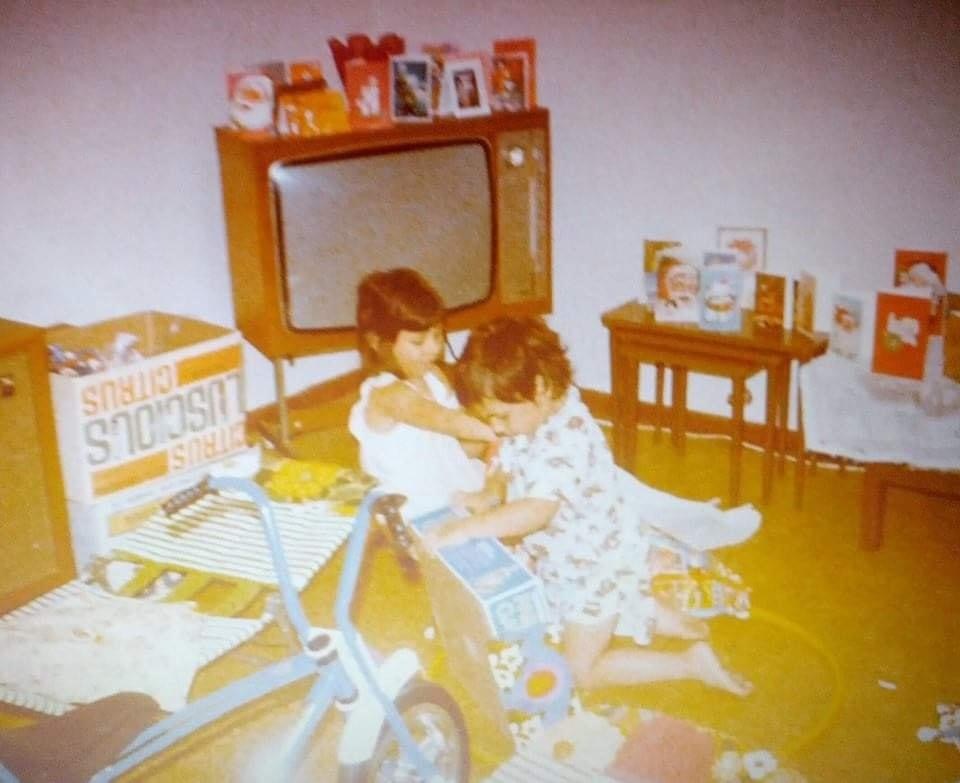I’m out! So what happens now?

The decision has been made and you’ve had the talk so what happens now?
And what effect will the choices you make have on your future?
I’m out, so what happens now?
For most of us separation or divorce is uncharted waters. It is big change. Big change in our lives, big change in all of our relationships and the choices we make in the face of that can have big consequences for our future.
But that doesn’t mean you have to freak out, because there are also simple choices you can make which will mean the process is a whole lot quicker, a whole lot cheaper and a whole lot easier.
So to help with that this article lays out some clear simple answers to the top five questions from people going through a separation or divorce and the pro’s and con’s of each choice you can make.
Spacer
I have to go to court don’t I?
The simple answer to that question is no, you don’t have to go to court.
The alternative to going to court is to choose a negotiated settlement. A negotiated settlement is where you and your ex – with or without the help of lawyers – negotiate an agreement between you. That agreement can take a few different forms.
Informal agreement
If you and your ex get along – and can communicate well – you can simply make an informal agreement where you both agree to who gets what and how you see the kids. The advantages, it’s basically free and it’s pretty quick. The disadvantages are it’s not legally binding so if something changes in the future – for example new partners – there is no way to enforce your agreement. There are also costs that can pop up from an informal agreement. Without a court order you will need to pay stamp duty if you want to change any ownership details – on a house for example. You are also unable to divide any superannuation without a court order, so if one of you has a lot more super than the other you aren’t able to change that.
Consent Orders
The legally binding alternatives to going to court is Consent Orders or a Binding Financial Agreement (which we like to call a post-nup).
For a free no obligation 15 minute What’s Next chat click this link
Spacer

Consent orders are simply a court order without the going to court.
Im out! So what happens now?
Consent orders – as the name suggests – is a process where you consent to an agreement you have helped negotiate which is then ratified by the Family Court. Consent orders can be done with or without a lawyer but can be legally complex, so if you choose to do it yourself make sure you do your research. Because consent orders are a legally binding set of documents approved by the court they must be right and they must be presented in the correct format or the court will reject them. But because consent orders are approved by the court they hold the same legal weight as an order by a Judge, they are simply a court order without the going to court.
a BFA
A binding financial agreement – or BFA – is basically a post-nup. It is a contract you both sign to divide your assets. Because it is a formal contract, a BFA is legally binding but it is not signed off on by the court so the court will not enforce it if there is a disagreement in the future. Like any contract it requires you to enforce it by taking your ex to the civil court if it is not honoured. A BFA can however be very useful for people with complex financial arrangements for example a business partnership or a family business. BFA’s can also be very useful for tax planning and for choosing the best time to sell or split assets.
Spacer
What about the kids?
Consent orders and BFA’s will work for property divisions but not for parenting. If you are negotiating parenting with your ex you have the choice of a parenting plan or parenting orders.

What works for a three year old may not work well for a teenager.
I’m out! So what happens now?
Parenting plans
A parenting plan is a written agreement for parenting. You negotiate an agreement with your ex about how you will both see your children and sign that agreement. A parenting plan does not require the approval of the court so wont be enforced by the court but it does formalise what you agree which means you can both refer back to it if there are disagreements or misunderstandings in the future. It also allows you to “roll with the punches” as your children grow, something which parenting orders can’t do.
Now most people believe they will never be able to negotiate with their ex and even if they do come to an agreement, their ex will never stick to it. But in our experience people can actually come to agreement and with minimal maintenance people do actually stick to their parenting plans. So it may seem impossible but parenting plans do actually work.
Parenting orders
Parenting orders are court orders setting out everything that happens to the children, from where they go to school to who has them on Christmas day. If you get parenting orders they are set in stone and if you need to alter them in the future you need to go back to court and start all over again. The advantage of parenting orders is they are court enforceable. If one of you doesn’t do what you should you can go to court and the court will decide. The disadvantage or parenting orders is what is appropriate for a three year old may not work well for a teenager but court orders are set in stone and can’t easily be altered. And because they are court orders, even if it becomes silly, you are both legally obliged to do what the parenting orders say.
Spacer
If I do go to court will it be A Few Good Men?
We’ve all seen the movies where the clever lawyer trips the witness up with a great little fact which destroys the whole case. “You want the truth, you cant handle the truth” cue the rousing music, cut to a close up shot of the defendant slumping in relief, roll the credits. Justice is served and evil is defeated.
If only it was that simple.
To book a free no obligation 15 minute What’s Next chat click this link
SPACER
Going to court is actually much more like sitting through a long economics lecture by a man with bad hair in his mid 70’s who cant use Powerpoint very well. It’s very technical, it’s very legal, it’s very expensive and it’s not much fun. And if you choose to go to court for your separation you will get to go through that once every two months or so, for two or three years.
But we still hear it time and time again. “When I get to court I am going to tell the judge how awful my ex is, how much my ex drinks, they use drugs, how awful a parent they are, how awful they were to me, and the judge is going to agree, I will get what I should get and more importantly my ex will get what they deserve”.
Unfortunately, court is just not like the movies. Anything you claim has to backed up with evidence and that evidence is harder to produce than you may think. And in Australia we also have no-fault divorce so bad behaviour just isn’t a factor unless it puts your children at risk. And you have to prove your children are at risk you can’t just claim it.

Pitt and Jolie have been arguing for 5 years and aren’t anywhere near an answer.
Spacer
Why wouldn’t I go to court to get the best deal?
There is no doubt that some people have no choice other than to go to court. In fact the Family Court of WA estimates 5% of separating couples will need to attend a court hearing. If there is a lot of emotion or bad feelings around separation, if one or both of you is simply unwilling or unable to negotiate or there are VERY difficult parenting decisions to be made, court may be your only option.
Court however should be your last option because of the financial and emotional cost and the time the court process will take.
If you go to court it can easily cost you at least $100,000 each – we often hear tales of people who have spent $200,000 each and are still nowhere near to a resolution – and if it gets out of control it can even run in to the millions. Angelina Jolie and Brad Pitt have been arguing in court for 5 years, are not even close to an answer and we can only imagine what they have both spent.
Also, court takes a long time. The Family Court of WA’s recent annual report shows it will on average take two years before you get a finding from a judge and it is common for it to take three years. And in that two or three years your life is on hold and you have all the stress of an ongoing court battle to deal with. And while all that is going on it is common that assets cant be sold or changed, bank accounts may be frozen and access to children is undecided.
In the court/ no court choice it is also very important to remember that any negotiations you have outside of court do not mean you get less than you are entitled to. For consent orders and parenting orders the court will examine them for fairness and equity and “sign off” on them and for a BFA you both must have legal advice and neither of you can be coerced in to signing. And on top of that any legal agreement you make is binding and requires both of you to sign an affidavit saying you haven’t lied – exactly the same as if you went to court.
Spacer
Do we even need lawyers?
For most of us separation, divorce or buying a house are the only times we will have any direct contact with the legal system and the only time we may need a lawyer. So although it is possible to DIY your separation there are lots of reasons why having a lawyer involved will make the process much smoother.
Basically a lawyer will navigate a legal system which you have no experience with. You can DIY your separation or divorce (We have included a link to a DIY guide at the end of this article) but you will need to negotiate directly with your ex, which depending on your relationship may be tricky. Having a lawyer to do it for you – especially a collaborative lawyer – can take the emotion out of that negotiation and also give you a sounding board for what is fair and reasonable and what you can reasonably expect to get. A lawyer can also make sure you are getting what you are entitled to and make sure you are protected in your negotiations.
To book a free no obligation 15 minute What’s Next chat click this link
SPACER
A lawyer has also done this before and knows the traps and pitfalls. Obviously the process is very legal and very technical and preparing documents for the family court and for superannuation funds can be tricky and frustrating. And if you don’t prepare them properly they will be rejected and returned to you which can mean a lot of tooing and froing while you try and try again to get it exactly the way they want it.

A good lawyer will protect your interests and make the whole thing as painless as it can possibly be.
Spacer
But mostly having a lawyer is about reassurance. A good lawyer is not just about legal advice. A good lawyer is a mentor, an advisor, a guide, and someone who is there to protect you. Change is hard and scary and separation and divorce is one of the biggest changes we will go through. Your lawyer is there to make that change easier and more straight forward, and because they have done it all before, to give you the reassurance that nothing is being missed and nothing is being forgotten.
SPacer
If you are interested in drafting consent orders yourself click the link below for a guide produced by the federal AG’S office or for more information on whats involved read our article on DIY Divorces.
Spacer
 For help with your separation or parenting issues contact BrightSide
For help with your separation or parenting issues contact BrightSide
Spacer
Or find us on
 Susan Hewitt is the Principal at Bright Side Family Law, a non-litigious family law and mediation practice. Susan has worked as a lawyer and journalist for almost 30 years. She is an accredited collaborative lawyer and FDRP mediator who is committed to helping families through their relationship breakdown in an honest, cooperative and respectful manner.
Susan Hewitt is the Principal at Bright Side Family Law, a non-litigious family law and mediation practice. Susan has worked as a lawyer and journalist for almost 30 years. She is an accredited collaborative lawyer and FDRP mediator who is committed to helping families through their relationship breakdown in an honest, cooperative and respectful manner.

Social